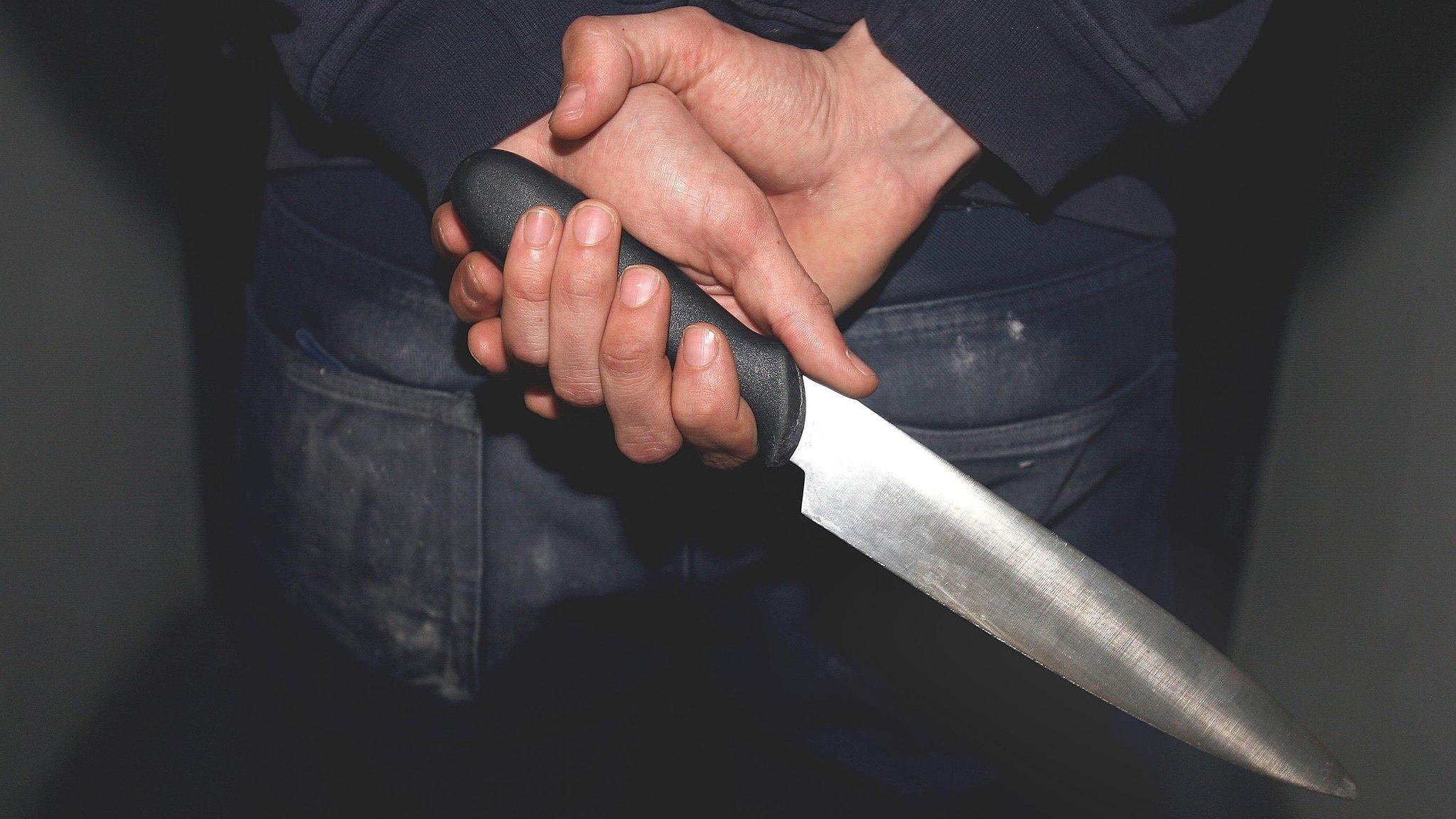The police team targeting London's knife crime
- Published
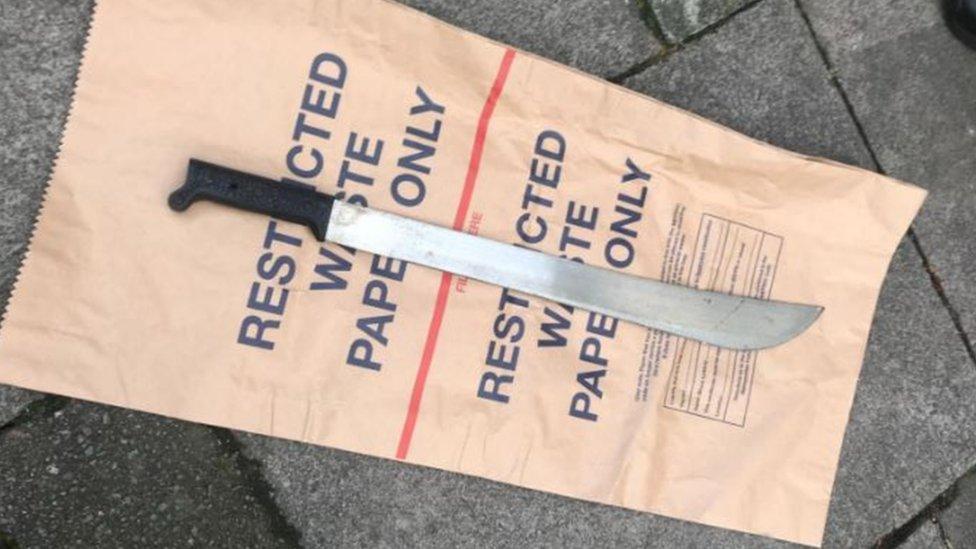
Just one of the many knives seized by police in London this year
At four o'clock in the afternoon a voice crackles across the police radio: "School fight... punch-up" and officers in the Violent Crime Task Force swing into action.
They switch on the siren and blue lights of their unmarked Vauxhall Insignia and start speeding across Croydon towards the incident at Norwood Junction station.
When they arrive, other police are already on the scene, talking to witnesses about what happened. For every officer in this huge south London borough, suppressing street violence is the priority.
In the last year, police in Croydon recorded almost 11,000 violent crimes and reports of people carrying knives and other weapons jumped by a fifth - with much of the violence apparently fuelled by feuds between drug gangs.
Across London there have been at least 123 homicides this year - including 70 stabbings - surpassing 2017's total of 116 deaths. Scotland Yard's answer to the surge in knife attacks has been to set up the city's Violent Crime Task Force.
"Gangs are interested in making money and they have areas where they will supply drugs and if there are other gangs encroaching in their area it does lead unfortunately to violence," says Inspector Paul Davey, who leads Croydon's task force.
"There are four or five established gangs in the Croydon area," the 41-year-old says.
"You could be looking at 10-15, even up to 30 people in each gang... where one person is moving away from the gang there is another one waiting to take their place."
Since the Violent Crime Task Force's launch in April, it has made more than 2,000 arrests and taken 475 knives and 165 guns off the streets - partly by increasing use of stop-and-search.
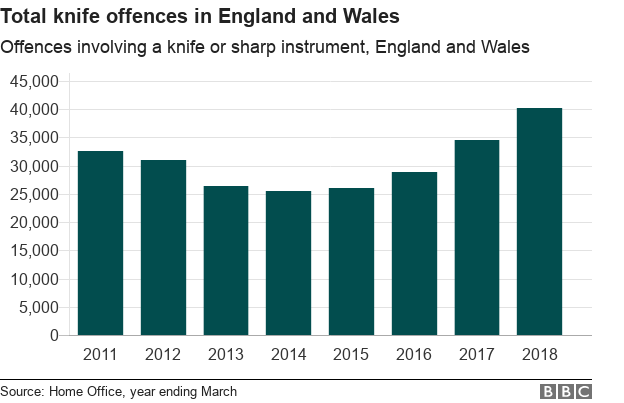
Inspector Davey is in charge of five Violent Crime Task Force teams, two of which are in Croydon.
Overall, the Met has 20 teams comprising 272 officers drawn from other policing units.
Much of their time is spent in plain clothes (with police stab vests underneath) driving across crime hotspots, responding to calls - and looking out for suspects: in Croydon, mugshots of 25 local offenders are pinned to a wall at the police station under the words: "The Wild West".
While they're on the move, police are also able to check number plates against an intelligence database.
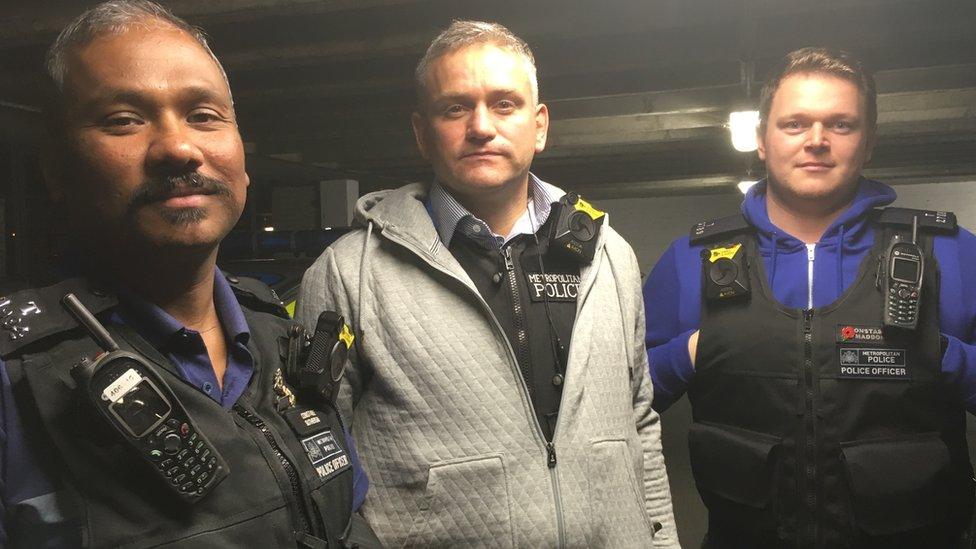
Inspector Paul Davey (pictured centre) is in charge of five Violent Crime Task Force teams - including two in Croydon
One car - a white BMW - raises the suspicions of the three officers in the unmarked Vauxhall. The BMW has been linked to various crimes and as it races through a red light, near Anerley, it is pulled over.
Police can smell cannabis, so the driver and his passenger are stopped and searched.
"There's nothing on me", says one of them - and no drugs or weapons are found, so the men are allowed to go on their way.
"It's intelligence gathering for us and it also sends the message out that we're looking for people," says Inspector Davey.
But he acknowledges that greater use of the stop-and-search tactic, after six years of decline, could raise tensions among ethnic minority groups.
Almost half of the 4,900 people stopped and searched in Croydon in the past 12 months were black, although black people make up less than a quarter of the borough's population.
"That danger is there and it is something that we all as police officers are aware of," he says.
"If you're carrying knives, we will search you, if we find you with them we will deal with you. Whether you are black or white it makes no difference to us."
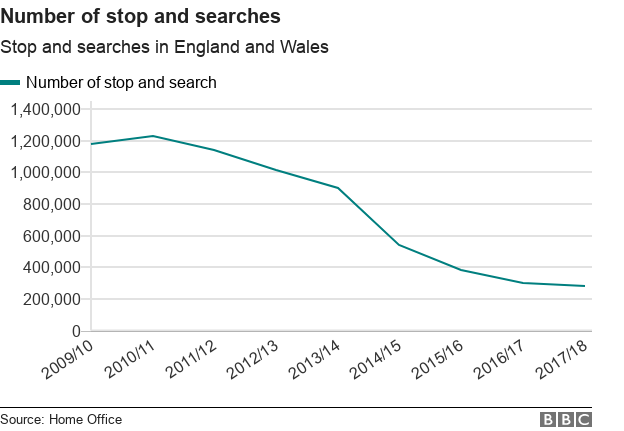
Later in the afternoon, in Norbury, three boys are stopped and searched outside a shop.
Among them is a 14-year-old who is wearing an electronic tag and under curfew, and a boy aged 15, who is found with cannabis and is arrested.
None of them has weapons or knives, but PC Tom Maddon, part of the Taskforce team, says the Met's more intrusive approach will make a difference.
"There is no stronger publicity than word of mouth," he says.
"As soon as... they find out that we are out and about searching people left, right and centre - with the reasonable grounds based on the intelligence that we do have - then hopefully that is the deterrent we need."
- Published17 December 2018
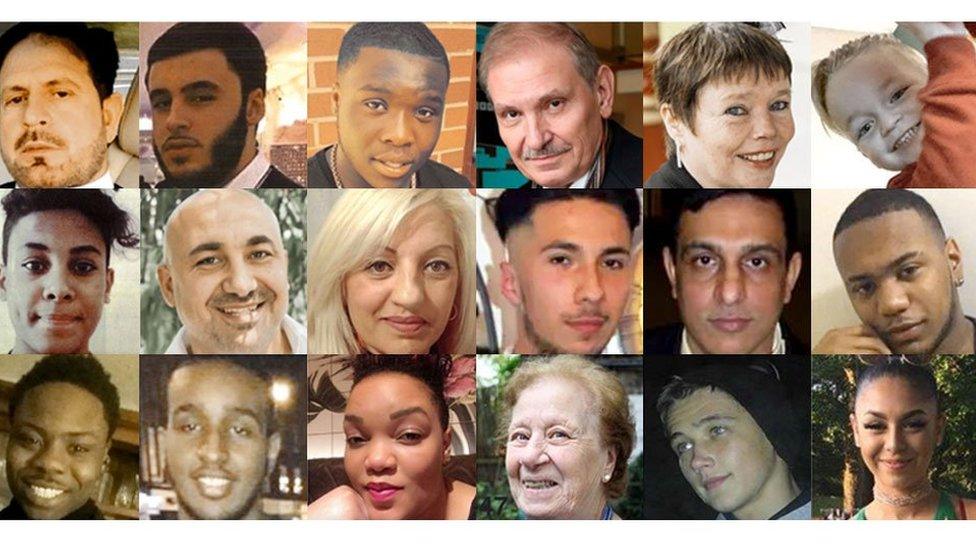
- Published18 July 2019
- Published1 November 2017
